Eventuri BMW E90 E92 E93 (M3) Carbon Fibre Air Intake System
BMW E9X M3
*Some images shown with the optional Carbon Airbox Lid
Performance Gain Dyno: 8-10hp, 10-12ft-lb
Performance Gain Road Dyno (Insoric): 16hp, 14Nm
IAT Difference with Ambient: Stock 7.5C : Eventuri 4.5C
V-Box Acceleration : 100-200kph Reduced By 0.3 Seconds
The BMW E9X M3 Eventuri intake system is the result of extensive research and optimisation which improves possibly one of the best designed stock intake systems we have seen. The E9X stock airbox system is a brilliantly designed intake with an excellent flow path and feed system for ambient air. However on closer inspection, there are restrictions in the inlet tube connecting the airbox to the inlet manifold. By redesigning the tube yet maintaining the airbox, we have been able to allow the V8 engine to breathe with greater efficiency and therefore gain power. In addition to the new tube design, we also identified a further restriction in the air feed system. To overcome this we designed a scoop to allow an increase in airflow through the airbox. This reduces inlet temperature values further and adds to the performance gain of the system.
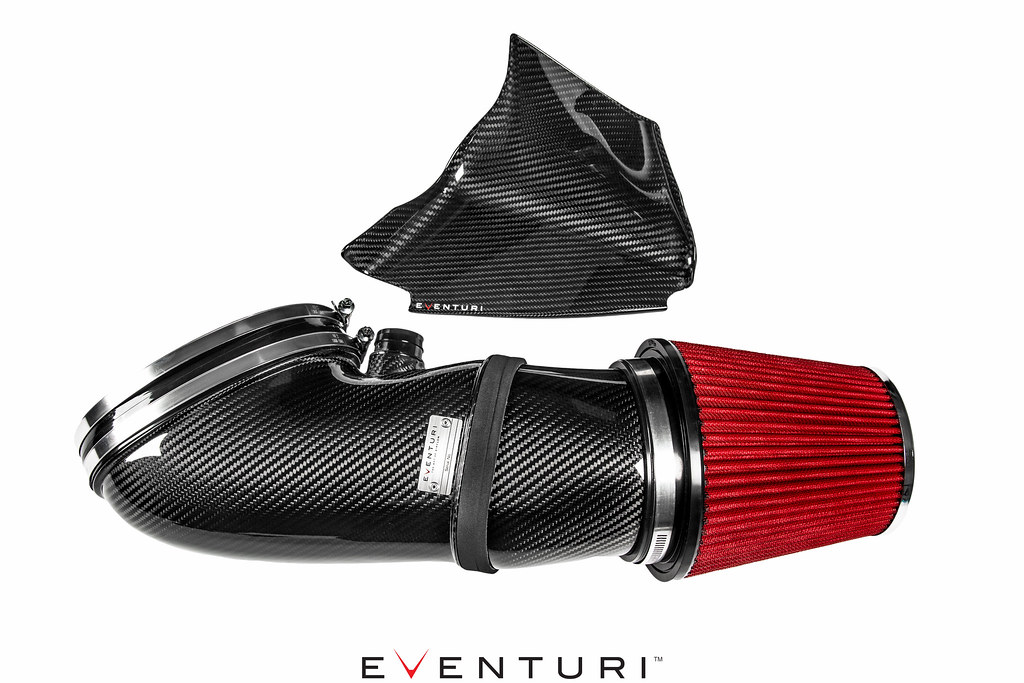
The Eventuri E9X M3 intake system consists of a number of components engineered to perform a specific purpose and fabricated to the highest of standards. Here are the details for each component and the design ethos behind them:
Each intake system consists of:
- Carbon Fibre Intake Tube
- High Flow Urethane Cone Filter
- Carbon Fibre inlet Scoop
- CNC Machined breather adapter
- Laser Cut Stainless Steel Debris Guard
- Silicon Coupler and OEM specification clamps
Carbon Intake Tube
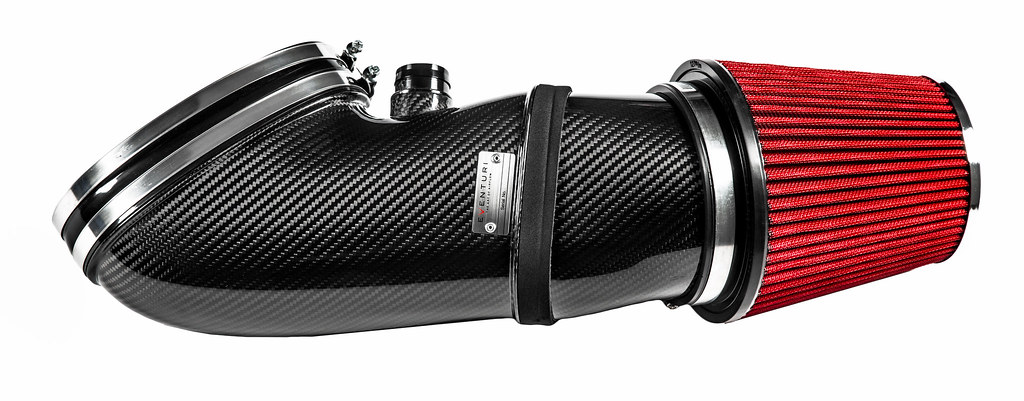
The intake tube was designed to improve the airflow path compared to the stock tube – from the filter to the manifold. It is a 1-piece design which has no internal interfaces and therefore provides a much smoother path for the airflow to negotiate. Furthermore the geometrical transition is from a circular opening for the filter to the oval exit for the manifold. This is a much more efficient change in shape when compared with the stock tube which has to transition from a rectangular opening for the filter to the oval exit for the manifold.
In order to appreciate the improvement in the design we must take a closer look at the stock system:
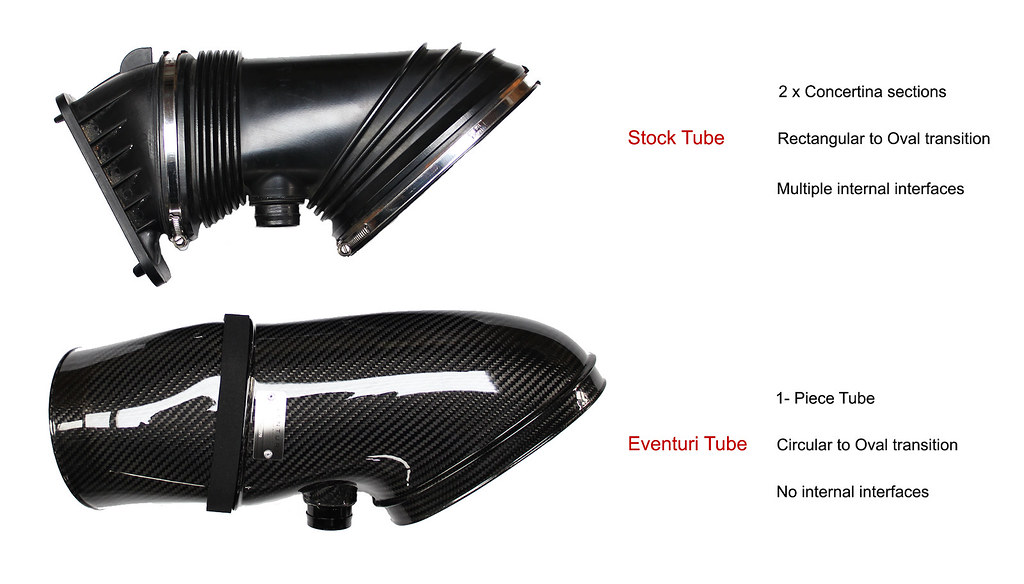
As can be seen – the stock intake tube has 2 concertina sections which are used to allow the tube some flexibility for engine movement. These sections introduce multiple internal interfaces to the oncoming airflow which results in turbulence and therefore a less efficient path for performance. The Eventuri tube on the other hand has zero internal interfaces and so airflow is allowed to stay laminar which allows the engine to breathe more efficiently.
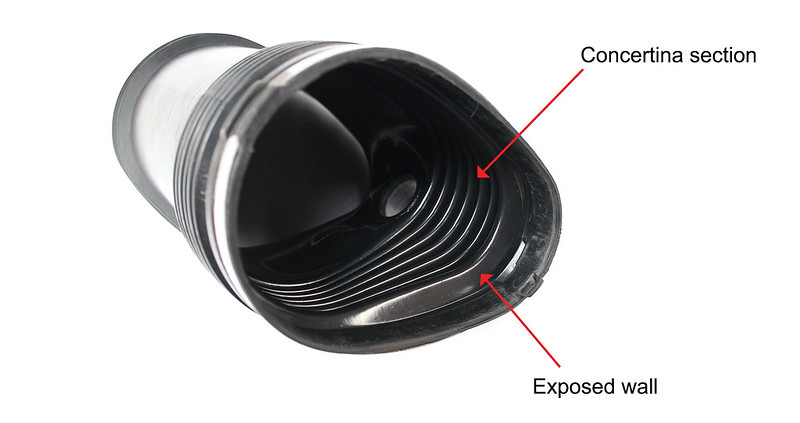
Another drawback of the stock tube is the large internal face at the stock filter connection. This exposed wall causes airflow to circulate as it enters the tube from the filter due to the sharp change in geometry from the rectangular filter opening to the more oval tube shape.
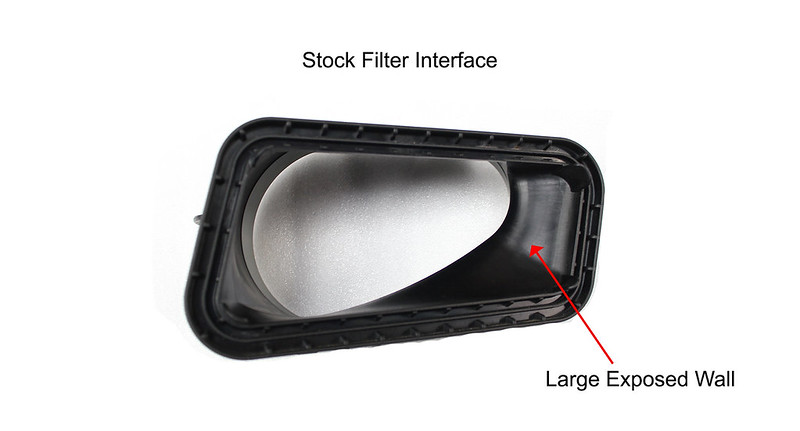
Now this can be compared with our tube design which has a much more gradual change in shape from a circular opening at the filter end to the oval opening at the inlet manifold end:
Flexibility and Movement
An important challenge to overcome was the requirement of movement with the engine. Instead of using silicon couplers with flexible sections (which would introduce similar interfaces as the stock tube), we designed the tube itself to be able to move with the engine. The tube has a compressible neoprene band around the section which interfaces with the stock airbox. This section seals the tube to the airbox yet allows movement in and out of the airbox as the engine moves. By allowing the tube itself to move – we have been able to create a flow path which is as smooth as possible.
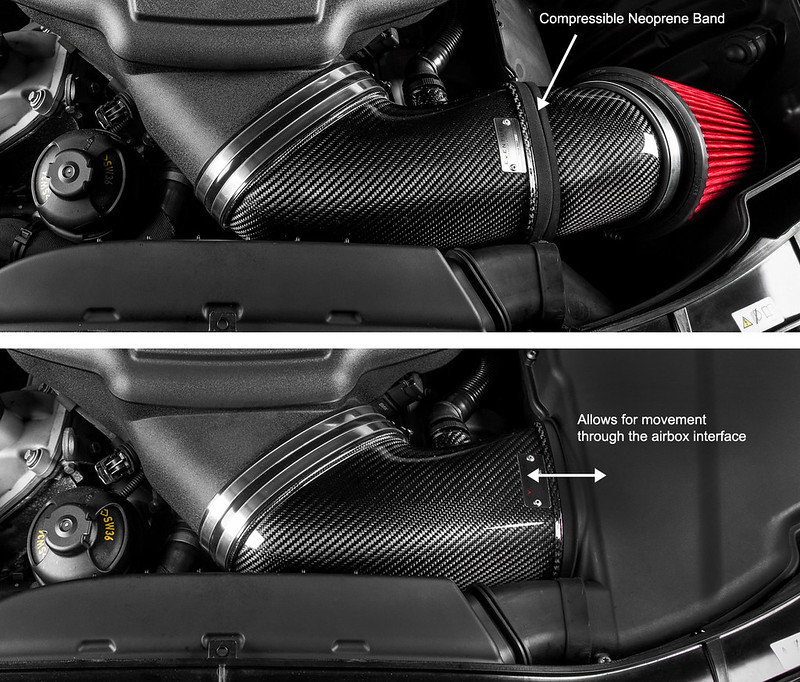
Carbon Air Scoop
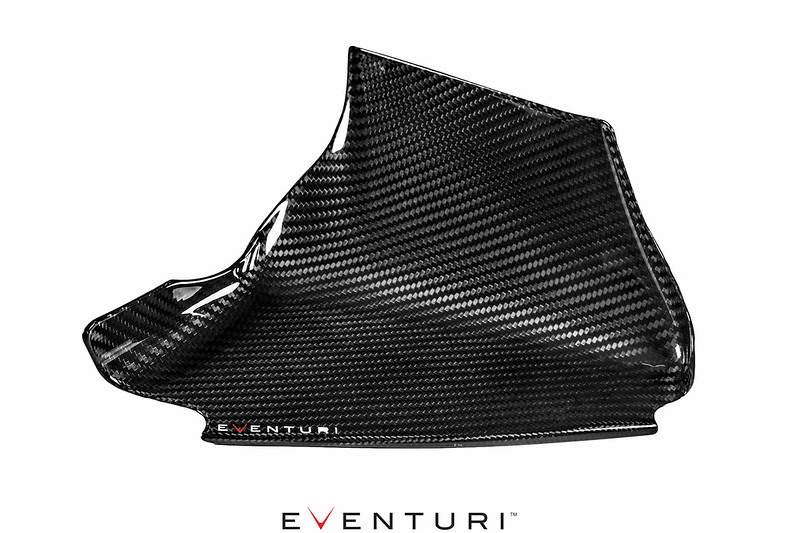
The E9X M3 airbox system is saturated with cold air from 2 feeds : a lower feed from underneath the headlamp and an upper feed from behind the kidney grills. The primary feed is the lower one from underneath the headlamp as it connects directly to the airbox with minimal change of direction and a large opening to the airbox. This is also a high pressure area of the car and airflow moves through the airbox from underneath to the exit at the top connecting to the exit vent in the bonnet. The other feed from behind the kidney grills which, although is a welcome addition, provides a much lower volume of air to the airbox than the lower feed. This is because airflow has to change direction through 90 degrees twice and also because the duct narrows down significantly before the entry to the airbox.
Looking at the lower duct more closely, it becomes clear that the duct has a large ridge which comes back on itself just before the opening to the airbox. This acts as a barrier which inhibits direct entry of airflow to the box by reducing the entry speed of the airflow.
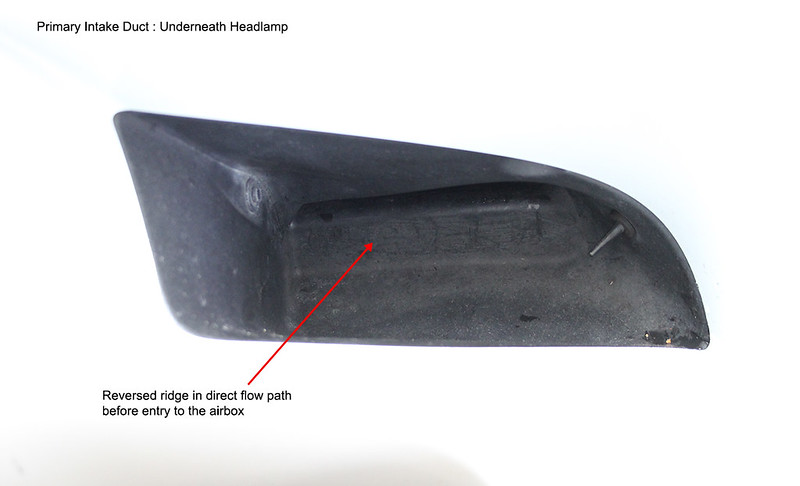
By designing a scoop to sit on top of the stock duct and curve up sooner to eliminate this ridge – airflow is now allowed to transition from the duct to the airbox without restriction.
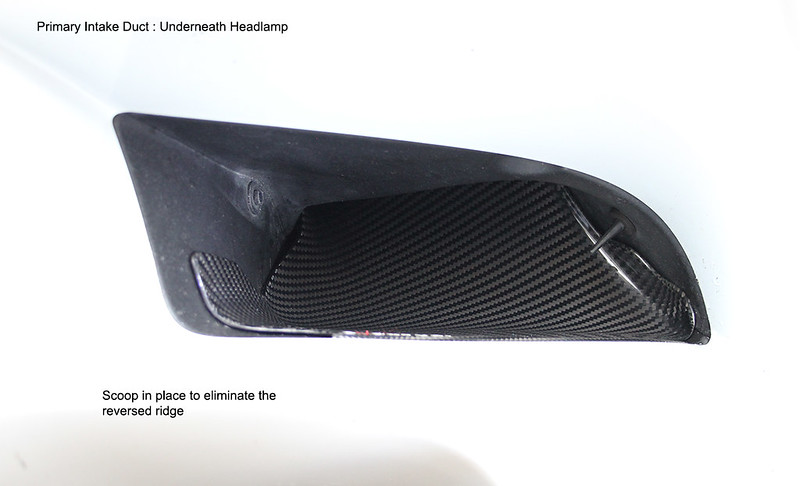
The airflow path is much smoother and as a result, the velocity of the air entering the airbox significantly increases. This allows the intake temperatures to be lower than without the scoop : we have data logged IATs road where we managed to reduce intake air temperature by 2 degrees using the scoop. To illustrate the effectiveness of the scoop, we devised a simple experiment with a leaf blower to generate flow and an air speed meter to measure the speed of the air entering the airbox. We secured the blower in one position so that it pushed air directly into the lower duct and placed the meter inside the airbox to measure the speed coming in. Results showed a significant increase in speed of almost 50% when using the scoop. The full testing video can be seen in the Video Tab.
Debris Shield
The final component is a debris shield attached to the filter – this deflects debris and water from impacting the filter directly. With the increase of airflow entering the airbox with the scoop – this is an important addition. There is no negative impact on performance since the airflow is not impeded through the airbox – temperatures are still lower than stock.
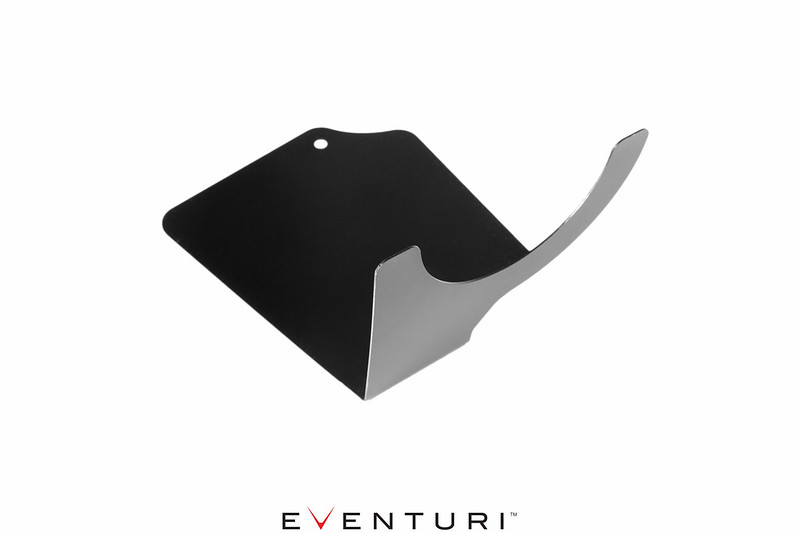
Performance Gain Dyno: 8-10hp, 10-12ft-lb
Dyno tests were carried out showing a consistent gain of approximately 9hp and 11ft-lb of torque. The gain is not just at the peak but throughout the RPM range. This translates on the road to increased part throttle and full throttle response with the car pulling much more eagerly to the redline. The testing was done on the same day back-to-back and temperatures were monitored to ensure consistency. The car was tested firstly with the stock intake – hood closed. We then left the car on the dyno and installed the Eventuri. The car was then run again – hood closed. Several runs were carried out with both configurations to get a consistent result.
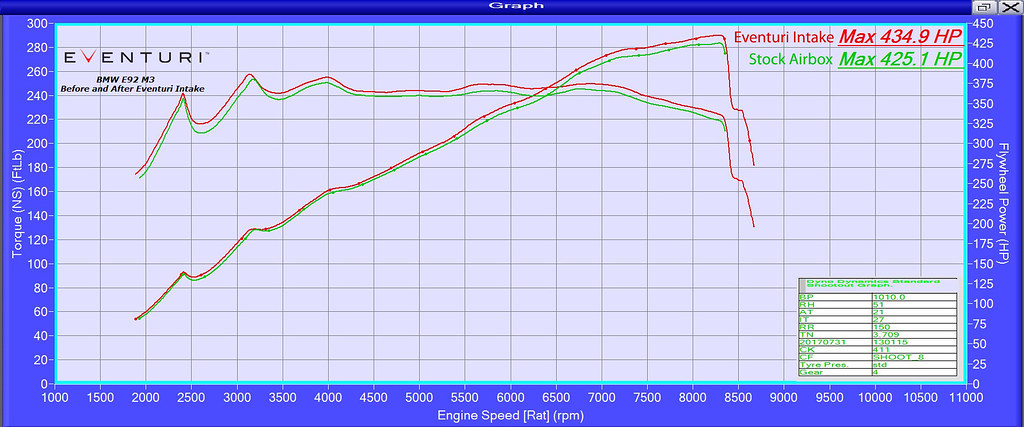
Read More








































